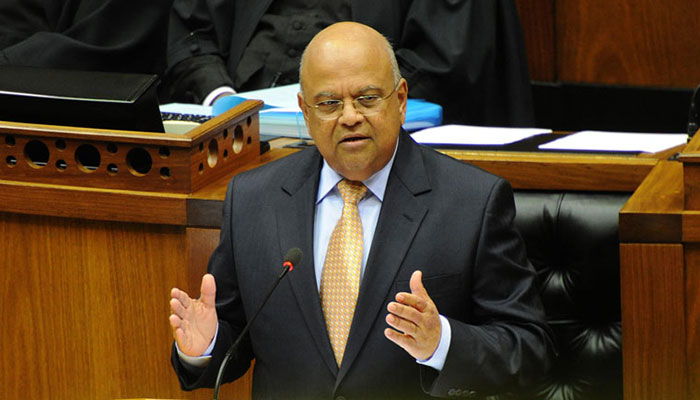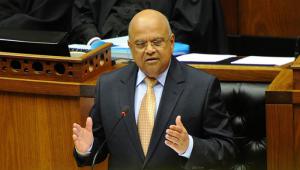web_pravin-gordhan_gcis_10439446966_4104640f87_o.jpg

South African finance minister Pravin Gordhan. Credit: GCIS
The band, which will apply to those earning above 1.5 million rand ($115,647), aims to deliver additional revenue ($399m) for the public coffers as both South Africa’s deficit and debt creep up.
It comes as part of a suite of other tax measures that will raise $2.1bn along with plans to cut spending by $2bn over the next two years, which Gordhan said reflected a balance between maintaining spending commitments and the long-term health of the public finances.
“Slow economic growth has held us back and so decisive steps are needed to strengthen confidence, investment and growth,” he said. “Acting too quickly to reduce the deficit would harm service delivery, delay economic recovery and compromise tax revenue collection.
“But to ignore our fiscal targets would result in interest rate hikes, unsustainable commitments and credit rating downgrades,” he noted, a nod to ratings agencies Moody’s and Standard & Poor’s, which are due to assess South Africa in the coming months.
Weak tax receipts ($2.3bn less than expected) and a sluggish economy, hitting wage growth and employment, have seen the deficit edge up to 3.4% of GDP from a projected 3.2%.
The minister also announced that state debt now stands at $169bn, or 50% of GDP, although he said this would stabilise at around 48% in the next three years – still higher than planned.
Meanwhile, the government expects GDP growth to increase from 0.5% last year to 1.3% in 2017, and to improve further in the years to follow.
However Gordhan admitted this was “too slow” and “not sufficient”, falling far behind the target of the country’s national development plan.
He announced a number of measures aimed at strengthening the economy and making growth more inclusive, highlighting the “deficit of trust and loss of social solidarity” across many countries around the world.
But Greg Tarrant, associate director at PwC South Africa, noted that new tax rates, combined with increases in the fuel levy and the “usual” increases in ‘sin taxes’, including the tabled introduction of a sugar tax, will “hit certain sectors of the economy quite hard”.
Gordhan also announced plans to crack down on tax avoidance and strengthen public procurement and financial management in local authorities.
The main challenge going forward, according to ratings agency Fitch, is the "factional tensions" within South Africa's ruling party, the African National Congress.
Infighting within the ANC, including over the future of the finance minister, have hotted up again, leading to yet more political turmoil in South Africa and stalling policy implementation.
Fitch said political risks are likely to remain high "at least until" the party's national congress in December - a judgement that is reflected in the country's credit rating.











